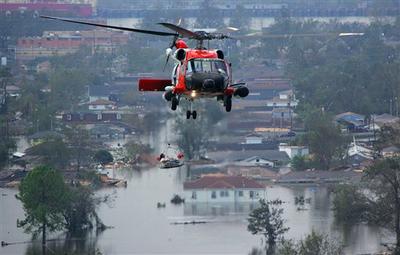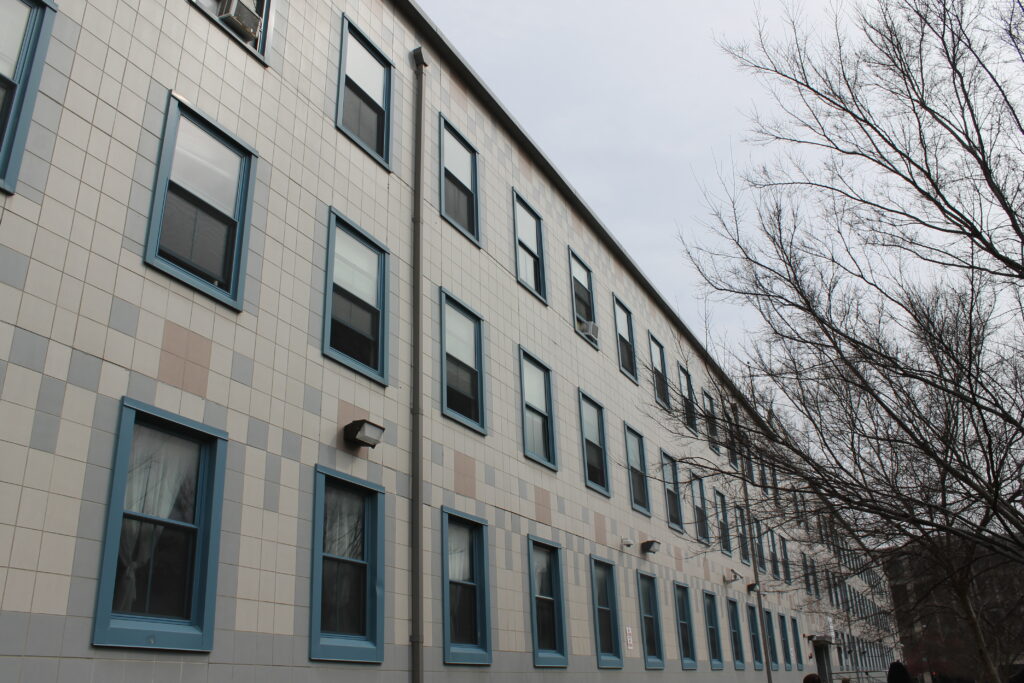After helping to rescue Hurricane Katrina victims, I got flown on a Delta airplane from New Orleans to Washington, D.C. After we landed we got crammed into busses that took us straight to the DC Armory. I didn’t know what a armory was. It like a big auditorium.
At the armory they had bed cots. They separate some of us by family, like the Johnson family, the Williams family, the Smith family. They also had an aisle of single cots, which is where I slept. It was like a big, ol’ dormitory in that auditorium.
They had all kind of computers and phones we could use. Nice clean bathrooms. We go out in a trailer to shower. When we sit outside of the armory, celebrity people drop by in limousine, ask if we want to go out to eat somewhere. Shaq came and I sit next to him and compare my shoes to his shoes. Man, his feet look like it make four of my feet. Shaq wear size 23!
I told him he was one of my best basketball players. The feeling of seeing Shaq and I never been that close to a basketball player before, it made me feel real good.
They have barber shop people and beauty salon too; a bus come to take us to get our hair cut. You got a log book for us to sign in and out every time we leave the armory.
And there was so much donation of food right there by different people. You eat duck, deer sausage, grits, eggs. You could go any time at night to eat. It was like a restaurant but with volunteers serving the food and no bill at the end of the meal. It smell like a soul food place all the time.
I help them carry food in and I always ask, “You got chicken?” Food was coming in around the clock and I was always searching the platter plates for chicken.
TV stars visited; politicians and regular church members came too. People that own big, nice restaurants took us out to eat.
They had a van to take us out on medical trips to clinics. I had to go, because I’m diabetic. Some rich folks had private doctors. We were a mixed group. We might have been on the plane with some millionaire people.
After a few days there, they started interviewing us. FEMA people asked what all we need help with. They said they would do this and that for us and we might not be in the Armory too long. Maybe three weeks or a month.
One of the FEMA workers interviewed me and then saidt it might be hard to get a place of my own. I asked, “How is that?”
He say ‘cause of my history of being in jail a lot.
So that’s when I asked, “Where I supposed to be stay at?” He say maybe a hotel room.
They even offered us baseball tickets. Once we settle in, they let us go outside and we could see the stadium right there.
They told us we can’t go out until we have our ID, because if you get lost out there, no one know who you are. But with the green and white ID’s people would know that you was a Katrina victim.
So after two days, we got our ID made—me and one of my new little friends got restless. I said, “We gotta find somewhere to go.”
I had been without drugs during Katrina, but now would I just go back to my old ways?
To be continued . . .







